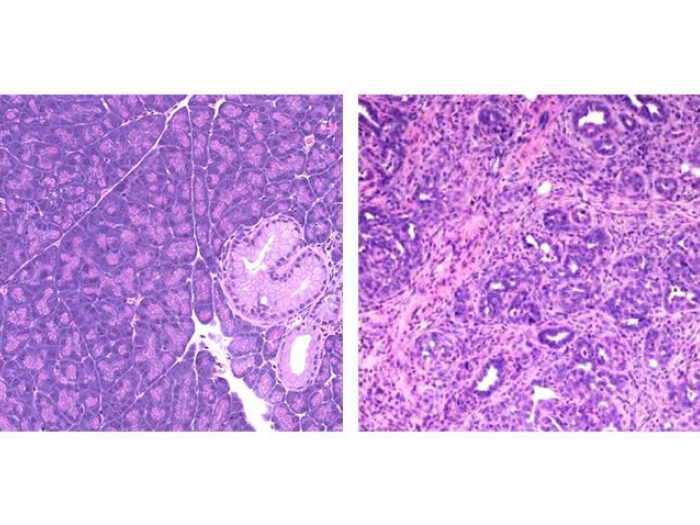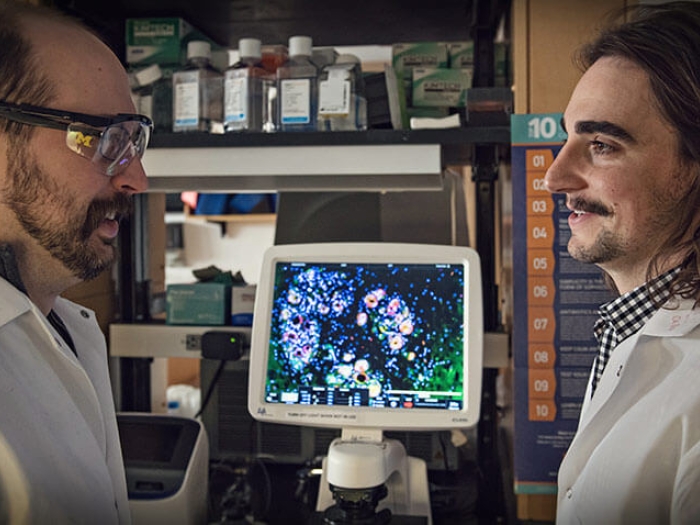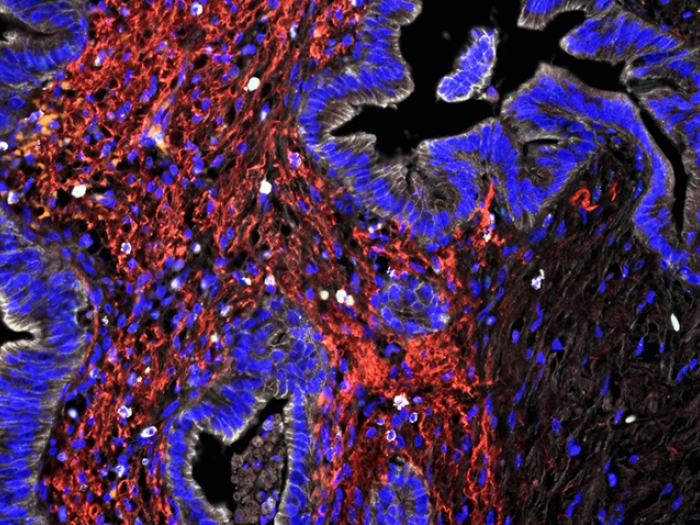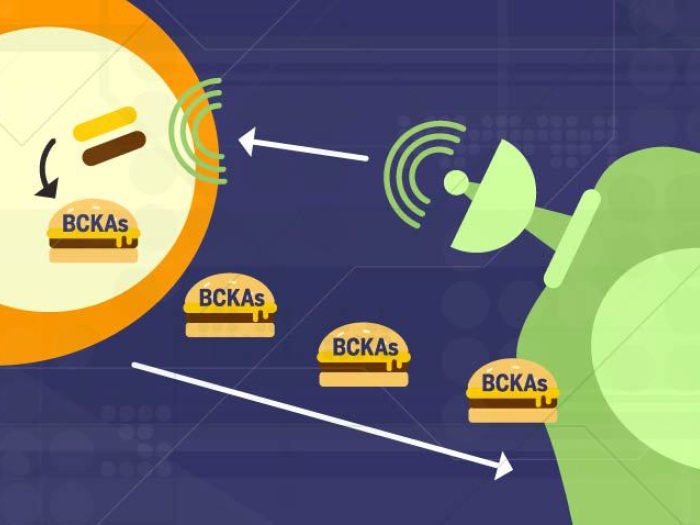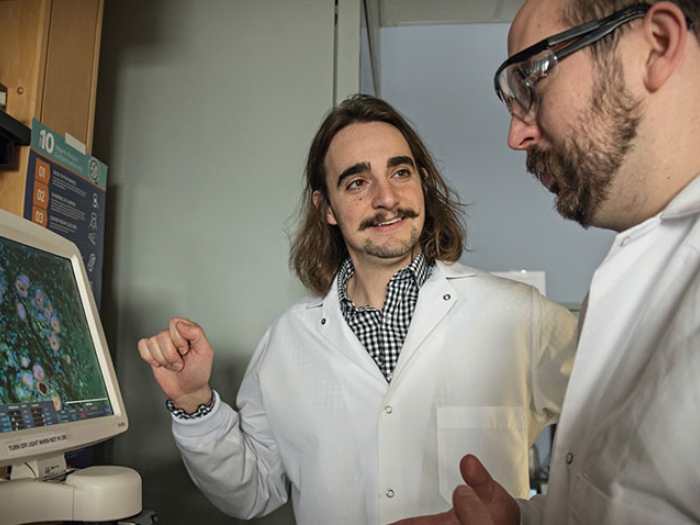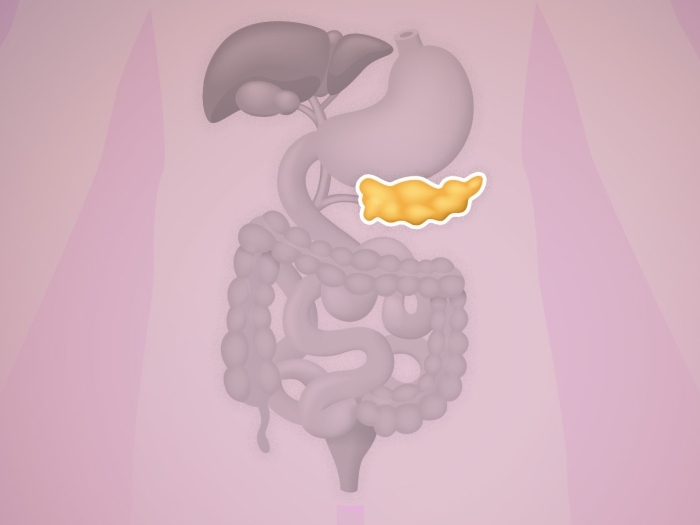An early clinical trial at U-M finds that a Wee1 inhibitor, combined with radiation and gemcitabine, is safe and potentially effective in pancreatic cancer treatment.
9:40 AM
Author |
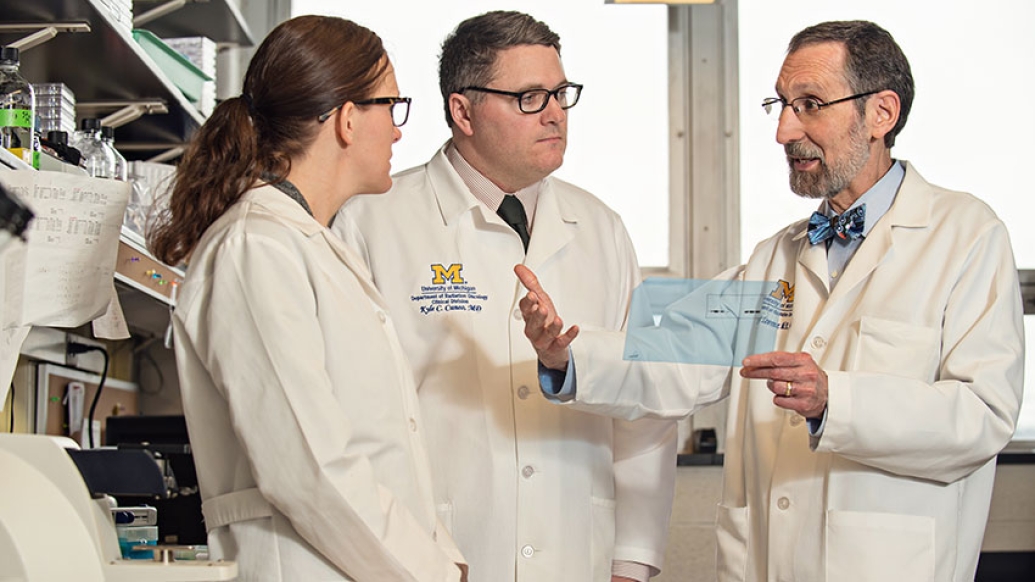
A clinical trial testing a new pancreatic cancer drug had promising initial results, say University of Michigan Rogel Cancer Center researchers in the Journal of Clinical Oncology.
Investigators ran a phase 1 clinical trial that looked at AZD1775, an inhibitor designed to block an enzyme called Wee1, which plays a role in repairing damaged DNA. The trial builds on almost 20 years of research at U-M focused on improving the treatment of pancreatic cancer cases that are too advanced for surgery.

SEE ALSO: Major Strides in Pancreatic Cancer Give 'Actual Reasons for Hope'
Radiation and gemcitabine, a chemotherapy drug, are standard treatment for pancreatic cancer that both work by causing damage to DNA. But pancreatic cancer has a way of repairing that damage, which limits how effective these therapies can be. A team of laboratory researchers, led by Meredith Morgan, Ph.D., previously found AZD1775 prevents pancreatic cancer from protecting itself against the effects of radiation and gemcitabine, while leaving normal cells relatively unaffected.
"If we can disable the DNA damage response in pancreatic cancer cells, it might eliminate treatment resistance and sensitize the cancer to the effects of both radiation and chemotherapy," says lead study author Kyle Cuneo, M.D., who is also an associate professor of radiation oncology at Michigan Medicine.
WATCH: Progress Against Pancreatic Cancer
The trial enrolled 34 patients with locally advanced pancreatic cancer. Patients received AZD1775 in addition to radiation and gemcitabine. The goal of the study was to determine the maximum tolerated dose of AZD1775 in this combination. In the process, the researchers also found that this combination resulted in better than expected overall survival.
Pancreatic cancer is particularly known for spreading to distant parts of the body, which is part of the reason that the overall, five-year survival is just 9%.
"If we're ever going to cure pancreatic cancer, we're going to need effective systemic treatment as well as local therapy. Our data suggests that AZD1775 can do both," says senior study author Ted Lawrence, M.D., Ph.D., Isadore Lampe Professor and chair of radiation oncology at Michigan Medicine.
The median overall survival in the study was 22 months, with no progression for a median of nine months. A previous study using gemcitabine alone in a similar group of patients found overall survival of 12-14 months.
"Adding AZD1775 to radiation and gemcitabine was relatively well tolerated with encouraging survival results. Further studies with this promising combination are needed," Cuneo says.
AZD1775 is being investigated in other cancer types, including breast and ovarian cancer. It is not approved by the Food and Drug Administration. The researchers are currently working on a follow-up phase 2 study in pancreatic cancer.

Explore a variety of healthcare news & stories by visiting the Health Lab home page for more articles.

Department of Communication at Michigan Medicine
Want top health & research news weekly? Sign up for Health Lab’s newsletters today!
